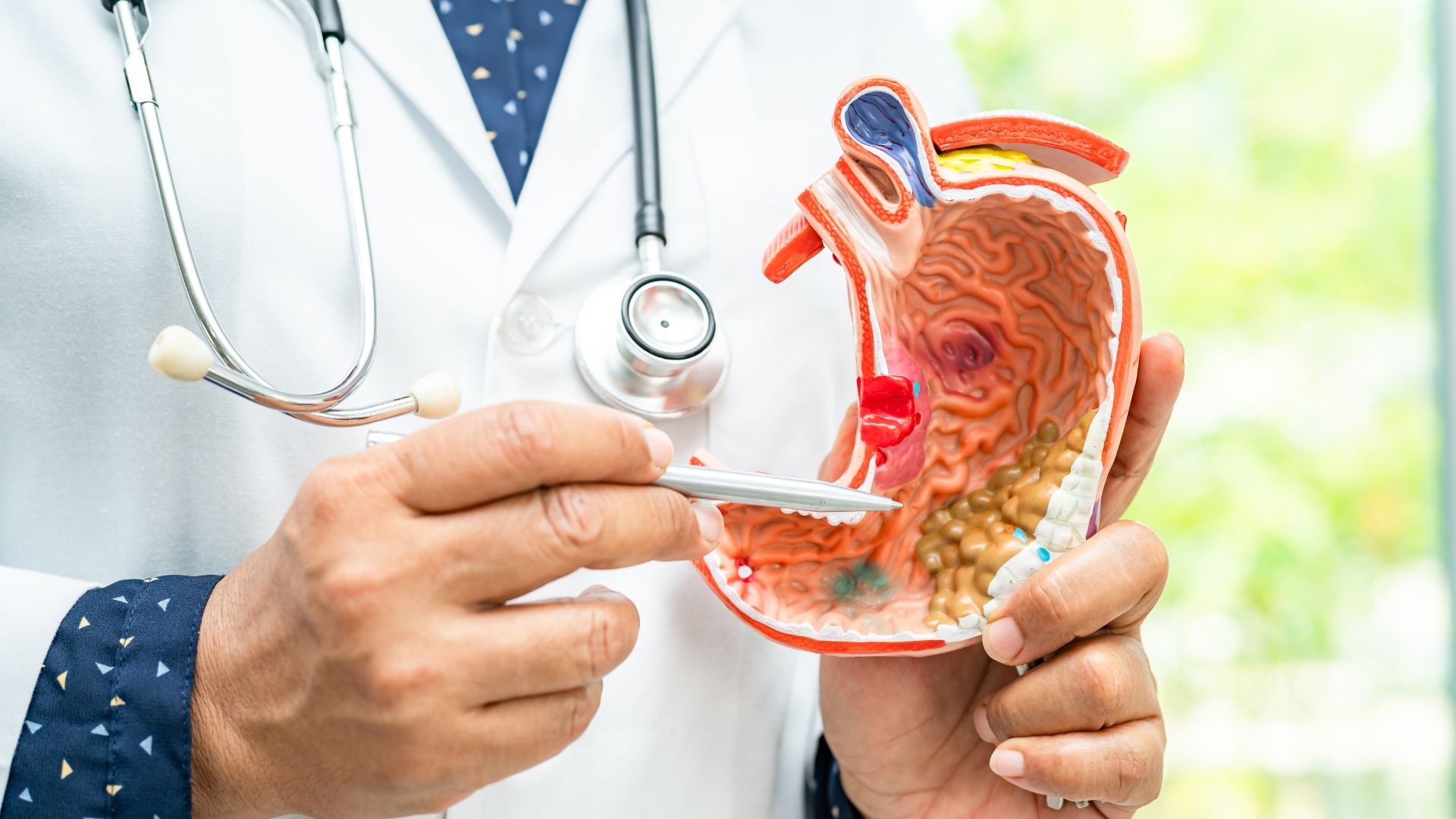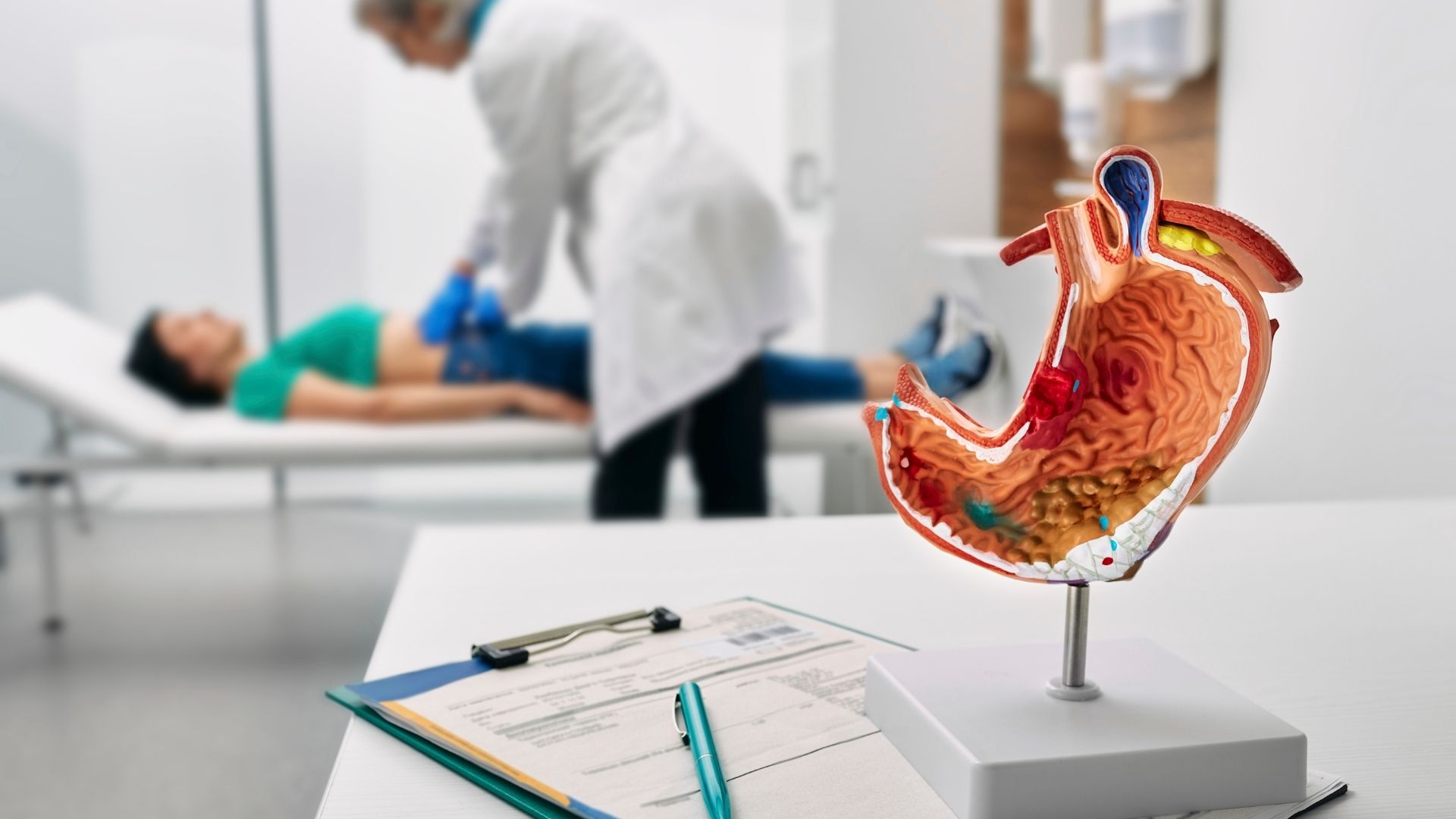What is Stomach Cancer?
Gastric cancer is a type of cancer that occurs as a result of uncontrolled growth and proliferation of cells in the stomach tissue for certain reasons. This disease is characterized by tumorous structures that form in the stomach tissue. Stomach cancer usually starts in the central part of the stomach, but can spread over time and affect nearby organs and tissues. Early diagnosis of the disease increases the chances of cure.
Causes of Stomach Cancer
Gastric cancer can be caused by the interaction of many factors. These include genetics, environmental factors and precursor diseases. Stomach cancer usually occurs by chance, but genetic predisposition, which can be passed on in families, can also play a role.
Some occupational groups may have a higher risk of stomach cancer. Coal mine workers, rubber and asbestos workers, and people involved in tire and petrochemical production may be at increased risk.
In addition, the following factors can increase the risk of stomach cancer:
Consumption of salt-dried, processed meats.
Use of certain food preservatives.
Excessive consumption of fermented soy products.
Excessive consumption of meat cooked at high temperatures.
Moldy grains, seeds and seed pods (may contain aflatoxins).
Excessive consumption of fried foods.
Excessive consumption of red meat, which is difficult to digest.
Ways to Prevent Stomach Cancer
It is important to take the following precautions to prevent stomach cancer:
Adopt healthy living habits: Regular exercise, avoiding stress and getting enough sleep support a healthy lifestyle.
Avoiding carcinogens such as smoking and alcohol: Smoking can increase the risk of stomach cancer. It is important to limit or completely stop drinking alcohol.
Eating a healthy diet: Eating more vegetables, fruit, whole grain foods and low-fat protein sources can reduce the risk of stomach cancer.
Avoiding consuming too much salt: It is important to limit the consumption of high-salt foods.
Avoiding repeated use of frying oils: Reducing consumption of foods cooked with unhealthy oils can lower the risk of stomach cancer.
Stomach Cancer Symptoms
Stomach cancer may not show obvious symptoms in its early stages. Problems with the digestive system can be considered early symptoms of stomach cancer. However, such symptoms may be similar to other digestive problems. Therefore, it can be difficult to recognize the symptoms of stomach cancer.
Symptoms of stomach cancer may include
Indigestion and burning in the stomach.
Painful burning sensation in the chest area.
Swelling in the abdomen.
Gas pains and belching.
Feeling full in the stomach and early satiety.
Nausea and vomiting.
Difficulty swallowing and loss of appetite.
Pain in the abdominal area.
Fatigue and weakness.
Unplanned weight loss.
Bleeding in the stomach, blood in the stool or vomiting blood.
Stomach Cancer Diagnosis Methods
Various methods are used to diagnose stomach cancer. These methods include:
Gastroscopy: A procedure that examines the inside of the stomach with a flexible tube. Cancer can also be diagnosed by taking samples of stomach tissue.
Radiologic Imaging: Methods such as X-rays, computed tomography (CT) or magnetic resonance imaging (MRI) can be used to determine the extent to which stomach cancer has spread.
Biopsy: Cancer diagnosis can be confirmed by taking tissue samples from suspicious areas.
Stomach Cancer Treatment Methods
Gastric cancer treatment is determined depending on the patient’s general health status and the stage of the cancer. When evaluating treatment options, decisions are made based on the pathologic staging of the disease and the clinical condition of the patient. Treatment may include chemotherapy, surgery, radiotherapy or a combination of these options.




